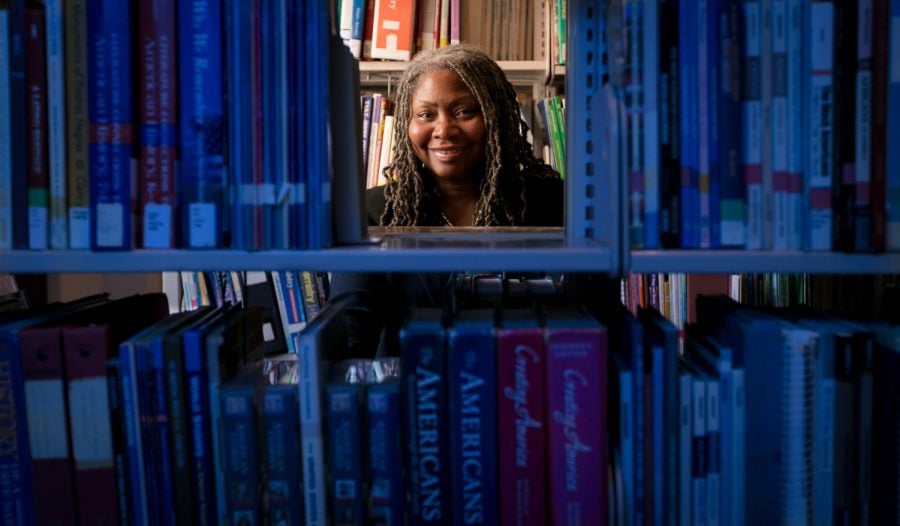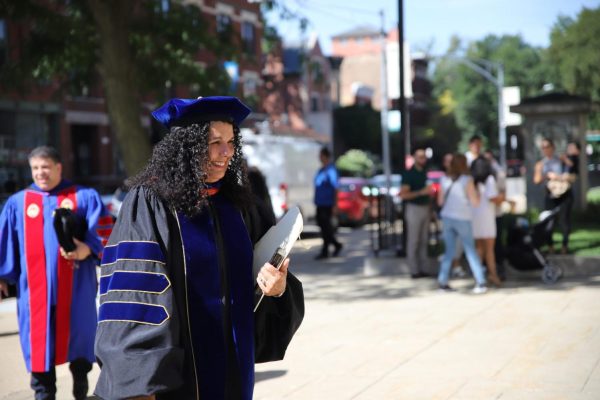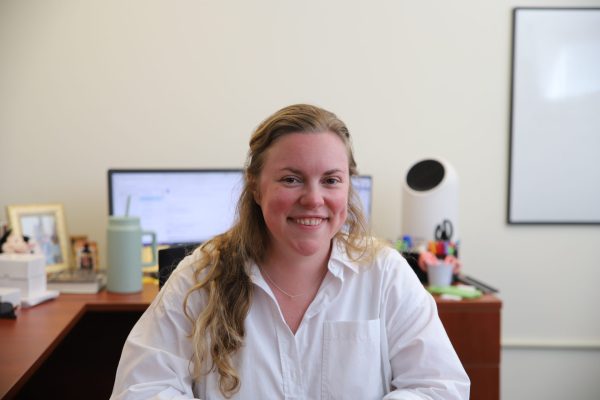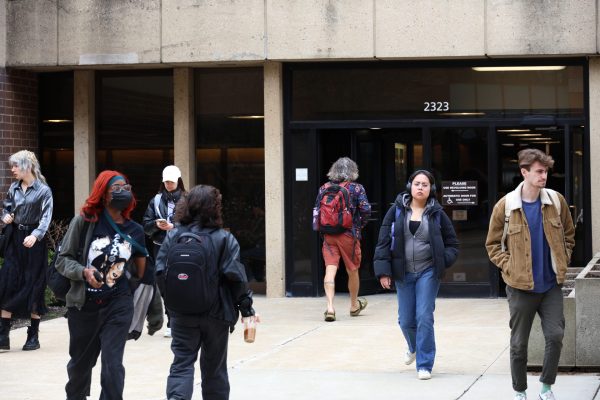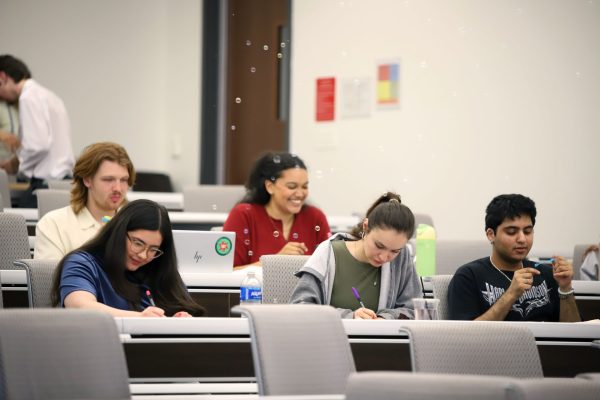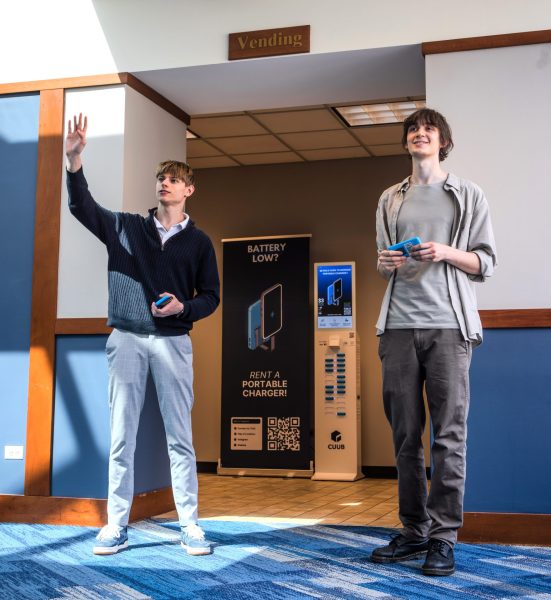DePaul professor discusses American political polarization on Chicago Humanities panel
Jeff Carrion | DePaulia University
FILE-DePaul political science professor Valerie Johnson combines her academic prowess with her dedication to social justice to bring reform to DePaul from the inside.
Valerie Johnson, an associate professor of political science at DePaul University, was joined by political analyst Amy Walter, presidential historian Barbara A. Perry and political columnist Mona Charen on Wednesday April 21 to discuss the political partisanship Americans are living through and how it may manifest in the future. The conversation took place as a virtual event hosted by the Chicago Humanities Festival.
These four women tackled the issues and hopeful resolutions of today’s political polarization through discussion of negative partisanship, racial injustice and American history.
“Are we divided, as some people say, because we misunderstand each other, or are we divided because we really know each other and we do not like each other and we have nothing in common?” Charen said.
Johnson answered this idea by discussing the racial tension as one of the major factors of political division.
“I certainly center the current political debate squarely on race,” Johnson said, “And frankly, I view it as another war between white people. There’s one side that desperately clings to the past — upholding traditional American values like white supremacy, patriarchy, militarism, rugged individualism — and then the other side is often either in denial or on the fence about whether we should in fact use this inflection point to expend the energy and resources needed to resolve the consequences of America’s original sin.”
Walter added that she believes negative partisanship is another component of why Americans are so divided today. Walter Pew Research Center on their report of the public’s 2019 priorities.
“The top five issues of Democrats were completely different from the top five issues for Republicans,” Walter said. “That makes having a conversation about solving problems almost impossible because we don’t agree on the same problems.”
Perry proceeded to compare today’s political climate and events like the Jan. 6 Capitol insurrection and the killing of George Floyd to the climate of America during the Civil War.
“Thank goodness at this point we haven’t devolved in civil war, but there are groups, particularly right wing militias in this country, that are bound and determined to promote a civil war in this country,” Perry said. “I believe that we are at an inflection point, that if we don’t do better and find some ways to unify and heal some of these divisions that we could be going down that road.”
Walter concluded the event by discussing how best to talk to people who are politically opposed to you without causing tension.
“I find it’s really easy to meet people and have conversations with people, by simply having a little bit of empathy, understanding who they are and where they come from,” Walter said. “We don’t spend a lot of time in other communities where they’re scared or we feel nervous we’re dumb or we feel out of place, and some get defensive, and some of the easiest ways to do that, I find, is you’re just starting a conversation.”
In a later interview with The DePaulia, Johnson expanded the topic of racism in politics and how she teaches her students at DePaul about it.
“I think that your generation owes it to itself to reckon with racism and genuinely respond to it instead of constantly kicking this up the road,” Johnson said. “We have the power to transform the world. When you look at the history of America, it has been transformed over and over and over again — it is not like we are hostage to the past.”
When asked what she hopes people will get out of the conference and conversations, Johnson emphasized the importance of youth making a change for a better future.
“I hope that my students will understand that they can be agents of change, and that we have to change situations where we are,” Johnson said. “I think a lot of times people think that being a change agent requires you to be on television or do something heroic. I think you can be a change agent wherever you are.”


